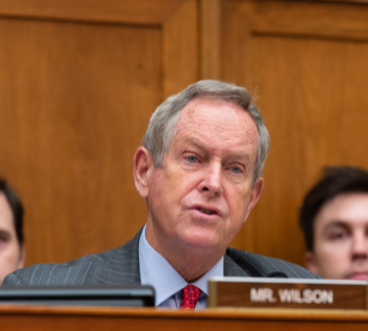United Kingdom
NATO Refocused, Europe Reinforced
Aug 10, 2022By Jessika Nebrat, Max Kampelman Fellow Following the escalation of Russia’s war against Ukraine, the North Atlantic Treaty Organization (NATO) is playing a role it has not filled in years. Forced to […]

European Energy Security Post-Russia
Jun 07, 2022Russia is weaponizing energy to prolong its unlawful invasion of Ukraine. Unfortunately, the sanctions that Europe and the United States have put in place have not been enough to curb […]
European Energy Security Focus of Upcoming Helsinki ...
Jun 02, 2022WASHINGTON—The Commission on Security and Cooperation in Europe, also known as the Helsinki Commission, today announced the following hearing: EUROPEAN ENERGY SECURITY POST-RUSSIA Tuesday, June 7, 2022 2:30 p.m. Watch […]
Russia’s Swiss Enablers
May 05, 2022Long known as a destination for war criminals and kleptocrats to stash their plunder, Switzerland is a leading enabler of Russian dictator Vladimir Putin and his cronies. After looting Russia, […]
Countering Oligarchs, Enablers, and Lawfare
Apr 06, 2022As influential proxies of Russian dictator Vladmir Putin, Russian oligarchs work to weaken Western democracies from within. They pay Western enablers—especially lawyers and lobbyists—millions to use their standing in democratic […]
Uniting Against Corruption
Dec 07, 2021At a virtual kickoff event on December 7, leaders of the U.S. Caucus against Foreign Corruption and Kleptocracy, the EU Parliament Anti-Corruption Intergroup, and the UK All-Party Parliamentary Group on […]
Inter-Parliamentary Alliance Against Kleptocracy to ...
Dec 03, 2021BRUSSELS, LONDON, WASHINGTON—At a virtual kickoff event on December 7, leaders of the U.S. Caucus against Foreign Corruption and Kleptocracy, the EU Parliament Anti-Corruption Intergroup, and the UK All-Party Parliamentary […]
OSCE SHDM on Digital Technology and Human Rights
Jul 26, 2021OSCE Conference on Risks and Opportunities Posed by Digital Technologies On July 12 and 13, 2021, the OSCE Office for Democratic Institutions and Human Rights (ODIHR) held the third Supplementary […]

Ranking Member Joe Wilson on July 2021 Congressional...
Jul 21, 2021Mr. Speaker, this month, I was grateful to participate in a Congressional delegation of the OSCE Parliamentary Assembly led by Senator Roger Wicker and Senator Ben Cardin. It was inspiring […]
Sweden’s Leadership of the OSCE
Jun 11, 2021In 2021, Sweden chairs the world’s largest regional security organization—the Organization for Security and Cooperation in Europe (OSCE)—which comprises 57 participating States stretching from North America, across Europe, and to […]
COVID-19 Vaccination Rollouts Expose Underlying Ineq...
Jun 07, 2021By Michelle Ngirbabul, Max Kampelman Fellow, and Shannon Simrell, Representative of the Helsinki Commission to the U.S. Mission to the OSCE More than one year into the COVID-19 pandemic, over […]
Swedish Foreign Minister Ann Linde to Appear at Hels...
Jun 03, 2021WASHINGTON—The Commission on Security and Cooperation in Europe, also known as the Helsinki Commission, today announced the following online hearing: SWEDEN’S LEADERSHIP OF THE OSCE Priorities for 2021 Friday, June […]
